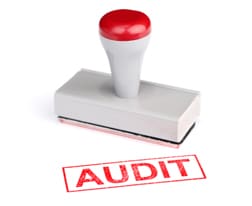If you are selected for an audit, well, you have little choice but to follow through with it. However, that does not mean you should simply raise your hands and give up. There are things you can do; you should strive to minimize the financial impact and to try preventing the IRS from investigating more than the initial items selected for your audit.
Sometimes you can get tax debt relief or owe nothing more after the audit, at least. However it is more likely that you will still owe money. It is essential to understand how to go into an audit to be able to prevent the IRS from looking at any more information in depth. In this article I wish to outline some IRS audit tips, those which I and my colleagues have found particularly helpful through the audit process.
Things you need to know about the Tax Auditors
Before you go into your audit there are few things you should understand about the average tax auditor. These guys have a really tough and stressful job. This is mostly because many people resent the fact that they are being audited, and they tend to take this out on the auditors.
I suggest you try and keep calm around the auditor and try and keep in mind that the auditor is simply trying to do his job and not trying to spite or hurt you financially, be calm and remain reasonable. Another thing to keep in mind is that the auditors are specifically trained to keep an eye out for things that don’t add up or are out of the ordinary, which is to say you ought to avoid showing or telling the auditors about things that have not been asked about. Remember, a little politeness goes a long way.
1. Hire someone who knows what they are doing.
Enrolled agents and irs tax attorneys can represent you at an audit. They’re trained officially in tax law & could therefore represent you with far better results than you could hope to achieve on your own. To a layman, the tax code is like a completely foreign language. Enrolled agents have been around for quite a long while, since the post-Civil War days, at least. And the training they go through is quite grueling and efficient.
2. Write things down & maintain good records.
Don’t just pull out your records all together year by year on the 15th of April! Create the habit of keeping & maintaining primary as well as secondary records throughout the year. And think about using a personalized filing system to keep your records close to the right tax return. This way, if you’re being audited, you’re prepared. Primary records are things like receipts and bills. While secondary records can be anything from mileage logs to spreadsheets, and any other type of summary info that may be important.
3. Collect information.
Haven’t kept records for the Tax year in question? That’s alright, we’ve all done that, once or twice. The solution is quite simple, albeit a little arduous and time-consuming. You need to go back to that year & try to accurately recreate those records as much as you can. If you have claimed any expenses in particular areas, e.g. medical expenses, it’s possible that your hospital or doctor still has your medical records on file. Don’t hesitate to ask for them, most doctors would not think twice about the request.
Also, you could call up the company you work for and ask for duplicate 1099 or W-2s forms. You could check with the mortgage company for your interest expenses for that year. Once you have all you can collect, put it all in a simple and neat format, summarized and with supporting documentation for the auditor to have a look at.
Also See: IRS Tax Forms
Those are all the tips that I’ve used or had a friend use. And in all honesty they’ve been quite helpful, but you need to understand, audits can be pretty gruesome for people who try and hoodwink the IRS, I suggest to always double-check all your tax returns and forms.
I wish you luck.
Related Posts From Our Tax Help Blog
IRS Tax Timeline 2014 Infographic Guide – Critical Dates, Deadlines, and Reminders
4 Common Property Tax Relief Questions – Answered
When And Why Would You Need An IRS Tax Attorney – The Inside Scoop
10 Ways to Settle Your IRS Tax Debts For Less Than What You Owe



